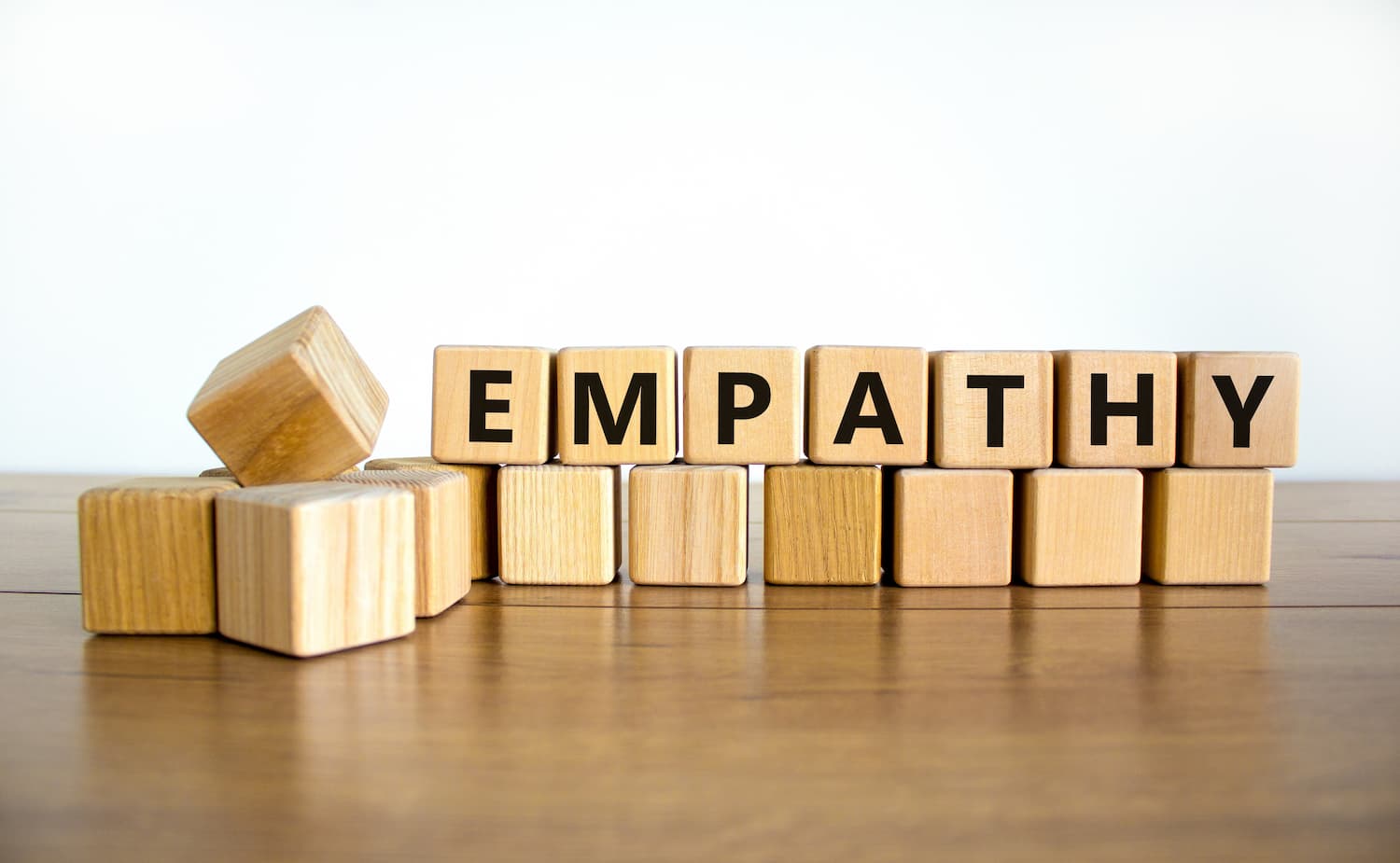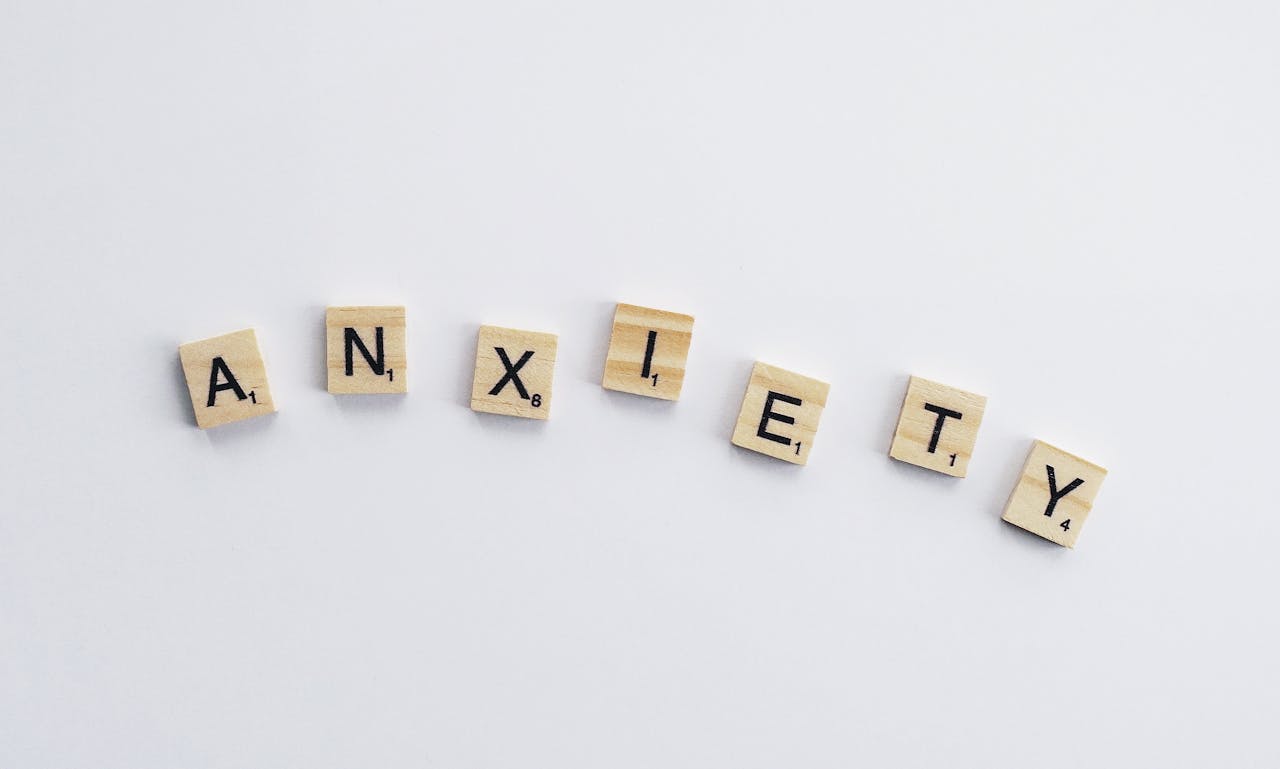What is Empathy and Why It Matters in Everyday Life

Empathy is something we all need, and something we all have the capacity for. It’s what helps us connect, not just with others, but with ourselves. When you truly understand how someone else is feeling, without needing to fix or judge, that’s empathy.
In our everyday lives, whether we’re talking to a partner, raising children, working with a team, or simply listening to a friend, empathy is what turns communication into connection. It’s also a key part of emotional intelligence, helping us build authentic relationships, decisions, and even conflict with greater care and clarity.
This guide will help you understand what empathy really is, how it differs from sympathy, and how to recognise it in yourself and others. We’ll explore the different types of empathy, the signs that show you’re empathetic, and why empathy matters, not just in your personal life, but in your professional world too.
Whether empathy comes naturally to you or it’s something you’d like to strengthen, this is a good place to begin.
What is Empathy
Empathy is the ability to understand and share the feelings of another person. It’s often described as “putting yourself in someone else’s shoes,” but more accurately, it’s about being present with their experience, feeling with them, rather than feeling for them.
When someone is hurting or going through something difficult, empathy allows you to connect with what they’re feeling, without trying to change it or make it about you. It’s about being alongside them in that moment, acknowledging their emotions with care and respect.
There’s a scientific side to empathy too. Research shows that our brains are wired to pick up on emotional cues through systems like mirror neurons. These help us recognise facial expressions, body language, and tone of voice, so we can respond in a way that feels emotionally attuned.
Empathy is deeply human. It plays a central role in how we relate to others, build trust, and feel connected. It can be strengthened over time with practice, reflection, and a willingness to slow down and really notice what someone else might be going through.
The Difference Between Empathy and Sympathy
Empathy and sympathy are often used interchangeably, but they’re not the same. While both involve recognising that someone is going through a difficult time, the way we respond makes all the difference.
Sympathy is when you feel sorry for someone. It often comes from a place of care, but it can create distance. You might acknowledge their struggle, but stay on the outside of it, offering comfort from afar.
Empathy, on the other hand, is when you feel with someone. Instead of standing at the edge and saying, “That looks hard,” empathy invites you to step closer and say, “I understand how that might feel.” You don’t need to have the same experience. What matters is the willingness to be present, to listen without judgement, and to connect with the emotion underneath their words.
Empathy creates closeness. Sympathy, while well-meaning, can sometimes unintentionally make someone feel alone in what they’re facing.
Being empathetic doesn’t mean you take on someone else’s pain, it means you’re showing them they don’t have to carry it alone.
10 Signs of Empathy
Empathy often shows up in small, everyday ways, through how we listen, respond, and relate to the people around us. Here are some simple signs that you may be more empathetic than you realise:
- You focus on what someone is truly saying, rather than thinking about what to say next.
- You often sense when someone is upset, even if they haven’t said anything.
- You may feel sadness, joy, or tension just by being around someone else’s strong emotions.
- You often find yourself thinking about the well-being of people you don’t know personally.
- You’re able to sit with someone in their pain, even when there’s no clear solution.
- You often pause to think about how your words or choices might impact someone emotionally.
- You tend to avoid small talk and feel more drawn to honest, heartfelt dialogue.
- You sometimes absorb the emotional energy in a room, especially in conflict or sadness.
- Friends and colleagues naturally come to you when they need someone to really listen.
- You often try to see things from someone else’s perspective before forming a judgement.
Three Types of Empathy
1. Affective (emotional) empathy
Affective empathy is your emotional response when witnessing someone else’s emotions. It’s when you experience a sort of “emotional mirroring”, feeling sad when your friend cries or joyful when someone you care about shares their good news.
2. Cognitive empathy
Cognitive empathy is about understanding someone else’s feelings and thoughts on a logical level. Instead of directly sharing their emotions, you’re able to put yourself in their mental space and imagine how they might be feeling.
3. Somantic empathy
Somatic empathy is the physical response you might experience when witnessing someone else’s pain or discomfort. It’s often described as feeling the emotions of others within your own body, like when you instinctively flinch after seeing someone get injured or feel a lump in your throat while watching an emotional movie scene.
Why Empathy Is Important in Personal Life
Empathy serves as the foundation for meaningful connections in our personal lives. By understanding and acknowledging the emotions of others, we can build trust, foster deeper relationships, and create a supportive environment where everyone feels seen and valued. It also plays a key role in making better decisions by helping us consider different perspectives and recognise the unique experiences of those around us.
Building Stronger Relationships
Empathy is key to building stronger relationships with family, friends, and partners. When you actively listen to someone’s feelings and respond with understanding, it strengthens your emotional bond. Relationships thrive when people feel heard and validated; empathy creates a safe space for open communication without fear of judgement. It nurtures mutual respect and encourages vulnerability, which is essential for any long-lasting connection.
Enhancing Emotional Intelligence
Emotional intelligence, which is the ability to identify, understand, and manage emotions, is significantly enhanced by empathy. Being attuned to the feelings of others helps you become more self-aware and better equipped to manage your emotional responses. By recognising what someone else is experiencing, you gain insight into your behaviours and reactions, allowing for more thoughtful and emotionally balanced interactions.
Encouraging Prosocial Behaviour
Empathy naturally encourages prosocial behaviours, actions that benefit others and contribute to the greater good. When you can relate to someone else’s struggles or emotions, it motivates you to offer support, kindness, and care. These actions help those around you and bring a sense of fulfilment and purpose to your own life. Empathy reminds us that we are all interconnected, promoting compassion and cooperation in our relationships and communities.
The Role of Empathy in Professional Life
Empathy is a powerful tool in professional settings that fosters better communication, builds trust, and creates a healthier work environment. It goes beyond simply understanding your colleagues’ challenges; it’s about responding in ways that show respect and genuine care, ultimately improving collaboration, productivity, and workplace culture.
Improving Workplace Communication
Effective workplace communication begins with empathy. When you take the time to understand the perspectives and emotions of your colleagues, it becomes easier to convey ideas, share feedback, and resolve misunderstandings. Empathy allows you to communicate in a respectful and inclusive way, ensuring that everyone feels heard and valued.
Leadership and Empathy
Empathy is a cornerstone of effective leadership. Leaders who demonstrate empathy can better connect with their teams, understand their concerns, and provide the support they need to thrive. By recognising team members’ individual needs and aspirations, empathetic leaders build trust and inspire loyalty. Empathy-driven leadership creates a positive work environment where employees feel motivated, supported, and empowered to perform at their best.
Conflict Resolution
Workplace conflicts are inevitable, but empathy is critical in constructively resolving them. By understanding the emotions and perspectives of everyone involved, empathy allows you to approach conflicts with fairness, patience, and a genuine desire to find a solution. Instead of assigning blame, it fosters mutual understanding and encourages collaborative problem-solving. This resolves the immediate issue and prevents future tensions by strengthening trust and communication.
Preventing Burnout
Empathy is essential for recognising and addressing the early signs of burnout, both in yourself and others. In demanding professional environments, noticing when someone struggles emotionally or mentally is invaluable. Empathy creates opportunities to offer support, redistribute workloads, or provide resources to promote well-being. When employees feel understood and cared for, it reduces stress, increases job satisfaction, and fosters a healthier, more sustainable work environment.
Frequently Asked Questions (FAQs)
1. How do you show empathy?
You show empathy by actively listening to others without interrupting, acknowledging their emotions, and offering understanding. It’s about creating a safe space where people feel heard, respected, and supported rather than judged or dismissed. Small gestures like validating feelings go a long way.
2. Is empathy the same as being too emotional?
No, empathy is not about taking on other people’s emotions, it’s about recognising them and responding with presence and respect, not overwhelm.
3. Is empathy good or bad?
Empathy is largely positive as it helps build strong connections, trust, and compassion in relationships. However, excessive empathy without boundaries can be emotionally draining and lead to burnout. Balancing empathy with self-care is essential for maintaining emotional well-being.
4. Does empathy mean love?
Empathy doesn’t necessarily mean love, but it is a key element of any loving or caring relationship. It enables you to understand and respond to your partner’s emotions, creating a foundation of trust, support, and emotional intimacy that strengthens relationships over time.
5. What causes a lack of empathy?
A lack of empathy can stem from personality traits, such as narcissism, or external factors like upbringing, unresolved trauma, or certain mental health conditions. In some cases, people may struggle with empathy because they were never taught to recognise or process emotions effectively.
- September 2025
- August 2025
- July 2025
- June 2025
- May 2025
- April 2025
- March 2025
- February 2025
- January 2025
- December 2024
- November 2024
- October 2024
- September 2024
- August 2024
- July 2024
- June 2024
- May 2024
- December 2023
- November 2023
- August 2023
- July 2023
- June 2023
- May 2023
- April 2023
- March 2023
- February 2023
- January 2023
- December 2022
- November 2022
- October 2022
- September 2022
- August 2022
- July 2022
- June 2022
- May 2022
- April 2022
- March 2022
- February 2022
- January 2022
- December 2021
- November 2021
- October 2021
- September 2021
- August 2021
- July 2021
- June 2021
- May 2021
- April 2021
- March 2020
- February 2020
- January 2020
- December 2019
- November 2019
- October 2019
- September 2019
- August 2019
- July 2019
- June 2019
- May 2019
- April 2019
- March 2019
- February 2019
- January 2019
- December 2018
- November 2018
- October 2018
- September 2018
- August 2018
- July 2015
- May 2014











